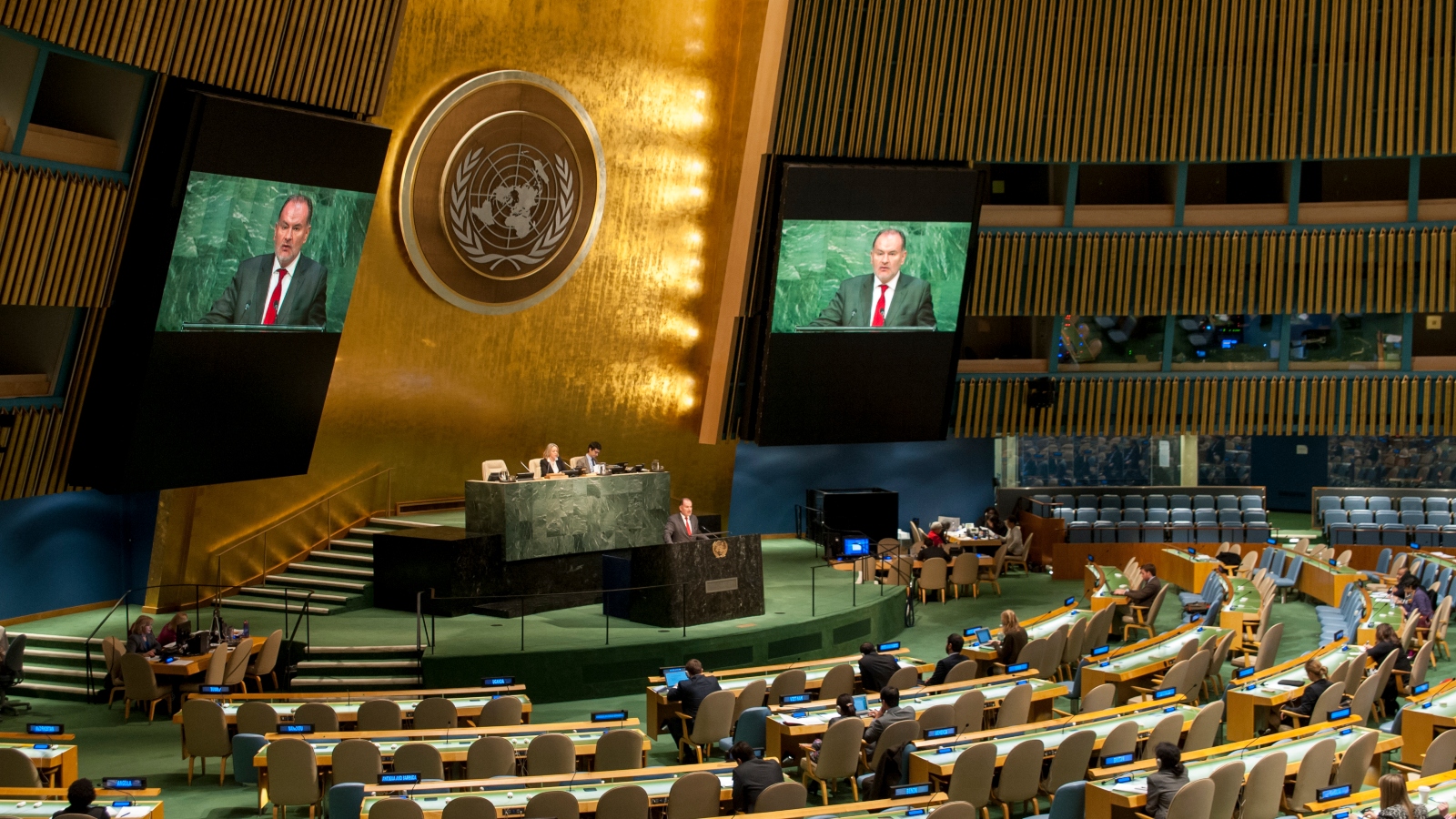
On 11 December 2015, the United Nations General Assembly (UNGA) held a high-level meeting on the occasion of the twentieth anniversary of the World Summit for Social Development. Speakers emphasized the importance of a human-centred approach to development, many citing examples of goals achieved through successful national policies, while others also mentioned growing challenges to progress.
Mogens Lykketoft, President of the General Assembly, said that at the 1995 Summit in his nation’s capital, Member States had adopted the Copenhagen Declaration and Programme of Action to advance social development through 10 commitments ranging from poverty eradication and reduction of inequality to promotion of human rights-based social integration. The recently adopted 2030 Agenda for Sustainable Development enveloped three dimensions of sustainable development – economic, social and cultural – with poverty eradication still remaining at the very core.
The lesson from the Summit was that momentum must not be lost this time around and Governments, the scientific community, the private sector, civil society and various parts of the United Nations should work together and begin the hard work of implementation, he said. During the current session, the international community must demonstrate that the shift towards a low-carbon, climate-resilient, peaceful and prosperous world was not only feasible but already happening, and that sustainable development was not just a possibility but inevitable.
The representative of Denmark said that if the ambitious 2030 Agenda was to be realized, the international community must leave no one behind, in particular those at risk of marginalization. He cited an example of success from Denmark, where a company called “Specialisterne”, meaning The Specialists, was a leader in the global movement to create jobs for people with autism who would otherwise be outside the labour market.
Also pointing to instances of success, the representative of the Philippines said that, once known as the “sick man of Asia”, her country was now one of the fastest-growing economies on the continent. But progress achieved would be meaningful only if the benefits were felt by all. Towards that end, the Government had developed a conditional cash transfer programme which targeted families most vulnerable to poverty. As of August, approximately 4.4 million households were benefitting from the flagship social development initiative. The World Bank had recently hailed it as one of the largest and best-targeted social safety net programmes in the world.
Many delegates emphasized the centrality of the family unit to social development. The representative of Brazil said that, over the past decade, his country had experienced an unprecedented drop in inequality thanks, among other factors, to the Government’s inclusive definition of families who were the target of its programmes. Had Brazil not targeted all kinds of families — single parent, same sex, no children, no parent families— it would not have lifted 36 million people out of poverty. Instead, it would have contributed to deepening vulnerabilities and compounding discrimination those groups already suffered.
Several speakers discussed national and regional problems accumulating over the past two decades. The representative of South Sudan, speaking on behalf of the African Group, noted that the African family was facing many challenges, including poverty and the work-family balance. While Africa was experiencing positive economic growth, progress was slow in creating productive employment and decent work, with youth facing both unemployment and underemployment. He added that the full implementation of the Addis Ababa Action Agenda was critical for achievement of the Sustainable Development Goals.
 Welcome to the United Nations
Welcome to the United Nations